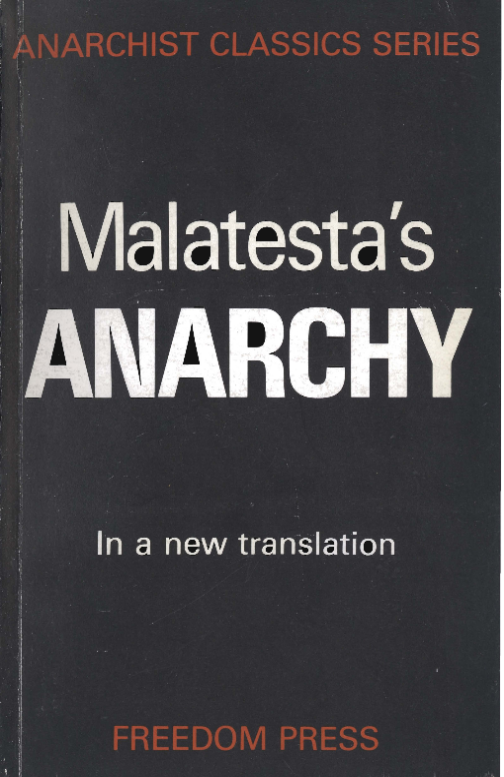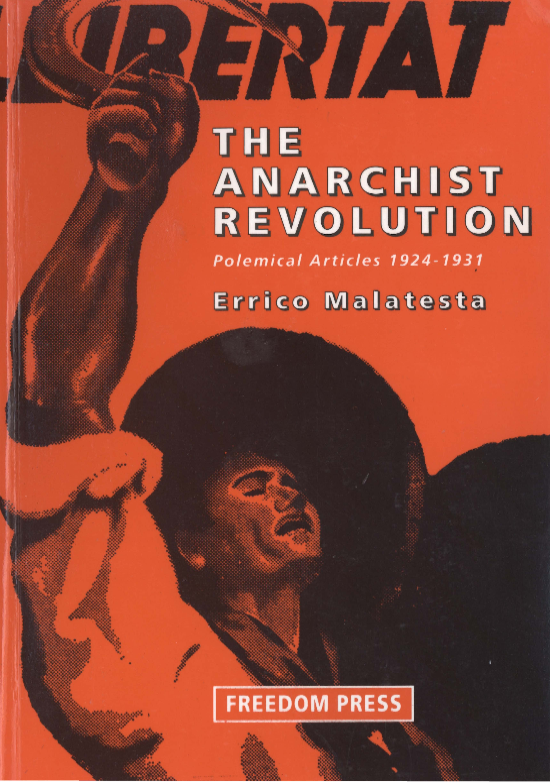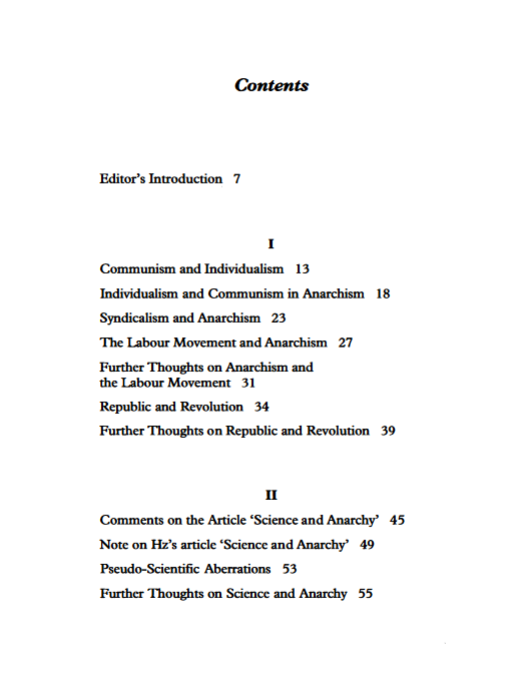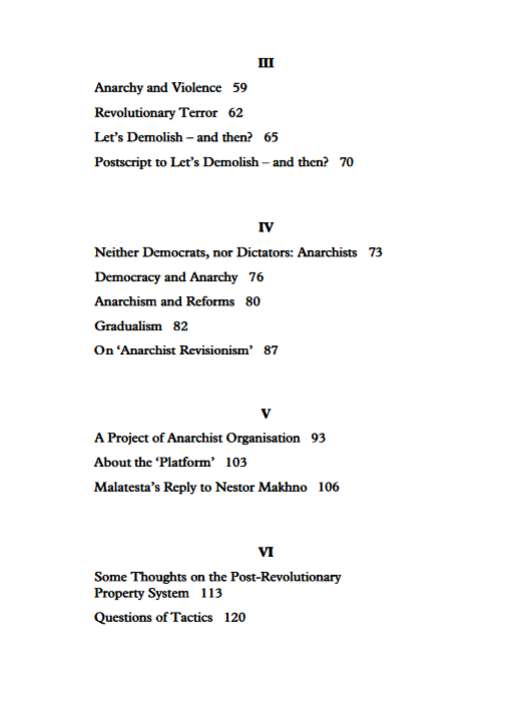Author(s)
Errico Malatesta
Vernon Richards (editor)
Contents
“Organisation, which after all only means cooperation and solidarity in practice, is a natural condition, necessary to the running of society; and it is an unavoidable fact which involves everyone, whether in human society in general or in any grouping of people joined by a common aim.
As human beings cannot live in isolation, indeed could not really become human beings and satisfy their moral and material needs unless they were part of society and cooperated with their fellows, it is inevitable that those who lack the means, or a sufficiently developed awareness, to organise freely with those with whom they share common interests and sentiments, must submit to the organisations set up by others, who generally form the ruling class or group and whose aim is to exploit the labour of others to their own advantage.
And the age-long oppression of the masses by a small number of the privileged has always been the outcome of the inability of the greater number of individuals to agree and to organise with other workers on production and enjoyment of rights and benefits and for defence against those who seek to exploit and oppress them.
Anarchism emerged as a response to this state of affairs, its basic principle being free organisation, set up and run according to the free agreement of its members without any kind of authority; that is, without anyone having the right to impose their will on others. And it is therefore obvious that anarchists should seek to apply to their personal and political lives this same principle upon which, they believe, the whole of human society should be based.”
Errico Malatesta
Leave a comment below with a valid email adress (it will not be published) to request this book.



